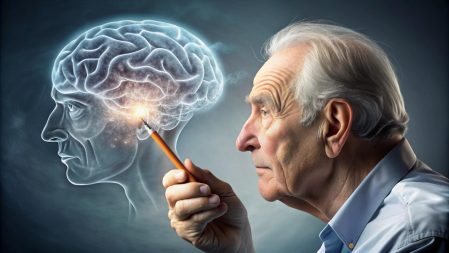Introduction
Aging is a natural and beautiful part of life, offering us new opportunities for growth, reflection, and joy. For many people, reaching 60 and beyond can be a time to focus on personal health and well-being with renewed energy and enthusiasm. While age brings unique challenges, it also brings a wealth of wisdom and experience that can serve as powerful motivators to make positive lifestyle choices. In fact, maintaining a vibrant and active life after 60 is not only possible but highly achievable with the right approach.
In this guide, we'll explore seven top healthy aging tips to help you make the most of this stage of life. These tips are designed to support you physically, mentally, and emotionally, helping you feel your best each day. Whether it’s through nourishing your body with essential nutrients, staying physically active, keeping your mind engaged, or prioritizing your social connections, each tip offers a practical way to boost your overall vitality.
The journey to healthy aging is one that embraces balance, self-care, and continuous growth. By making intentional choices and forming habits that promote wellness, you can continue to enjoy life fully and actively, feeling confident and empowered in the process. Remember, small changes can lead to significant improvements over time, and it’s never too late to start taking steps toward a healthier, more fulfilling future. So, let’s dive into these healthy aging tips and uncover the simple yet powerful ways to support your health and happiness after 60!
Affiliate Disclaimer
This blog post may include links to affiliate sites. If you click on an affiliate link and make a purchase, we may earn a small commission or receive other compensation at no extra cost to you. Please note that many of the links on our site are affiliate links. Our use of these links does not impact the products, services, or websites we recommend to you. This disclaimer covers all forms of communication with you, including our website, email, phone, social media, products, and other platforms.
Amazon Affiliate Disclaimer
We participate in the Amazon Services LLC Associates Program, an affiliate marketing program that allows us to earn fees by linking to Amazon.com and its affiliated sites. If you click on an Amazon affiliate link on our site and make a purchase, we may receive a small commission at no additional cost to you.
Tip 1: Prioritize Balanced Nutrition
Balanced nutrition is a cornerstone of healthy aging. The right food choices can support energy levels, immunity, bone strength, and mental clarity, empowering you to live a vibrant life well into your 60s, 70s, and beyond. A nutrient-dense diet provides essential vitamins, minerals, and antioxidants that combat inflammation, reduce the risk of chronic diseases, and maintain overall wellness. Incorporating balanced nutrition into your lifestyle is one of the best healthy aging tips you can follow.

Key Nutrients for Healthy Aging
- Calcium and Vitamin D for Bone Health As we age, bone density can decline, increasing the risk of fractures and osteoporosis. Calcium and vitamin D play a significant role in supporting bone health. Calcium-rich foods like dairy products, leafy greens, and fortified plant milks are excellent choices. Vitamin D, which helps the body absorb calcium, can be found in fatty fish, eggs, and fortified foods. Since vitamin D is also produced by sun exposure, spending a little time outdoors daily can help, though many people over 60 benefit from a supplement to ensure adequate intake.
- Fiber for Digestive Health and Heart Health Fiber is essential for maintaining digestive health and promoting regularity, which can be particularly important as digestive functions may slow with age. High-fiber foods also help regulate blood sugar levels and reduce cholesterol, supporting heart health and managing weight. Whole grains (like oats, quinoa, and brown rice), fruits, vegetables, and legumes are rich sources of fiber that can be easily added to your meals. This tip ties into the broader set of healthy aging tips by encouraging foods that naturally support multiple aspects of health.
- Omega-3 Fatty Acids for Brain and Heart Health Omega-3 fatty acids are vital for maintaining brain function and cardiovascular health, both of which are crucial as we age. They have anti-inflammatory properties that benefit joint health as well. Fatty fish like salmon, mackerel, and sardines are rich in omega-3s, as are plant-based sources like flaxseeds, chia seeds, and walnuts. Consider adding these foods to your diet several times a week for maximum benefit.
Practical Ways to Incorporate Nutrient-Dense Foods
It’s one thing to know about the right nutrients; incorporating them into your daily diet is the real challenge. Here are a few practical tips to bring these healthy aging tips to life:
- Start Your Day with a Nutritious Breakfast: Begin your morning with a balanced meal that includes protein, fiber, and healthy fats. For example, oatmeal topped with berries, nuts, and a side of yogurt is a great option that’s easy to prepare and nutrient-packed.
- Opt for Colorful Meals: A variety of colors on your plate usually means a variety of nutrients. Aim for a “rainbow” of fruits and vegetables throughout the day—each color provides different antioxidants and health benefits. Carrots, leafy greens, berries, and bell peppers are excellent choices that can be mixed into salads, soups, or smoothies.
- Stay Hydrated: Hydration is often overlooked but is a crucial component of balanced nutrition, especially as thirst signals can weaken with age. Drinking enough water helps maintain digestion, energy levels, and even mental clarity. Aim for around eight glasses of water a day, adjusting based on activity level and climate.
Portion Control and Moderation
Part of following healthy aging tips is practicing portion control and moderation. As metabolism may slow down with age, it’s wise to focus on portion sizes to avoid overeating. Enjoying smaller, balanced meals throughout the day can help maintain energy without unnecessary calories. If portioning feels challenging, try using smaller plates or filling half your plate with vegetables to naturally manage intake.
Conclusion: Embrace Balanced Nutrition as a Core Habit
Incorporating these nutrition-focused healthy aging tips can make a tremendous difference in how you feel daily. Balanced nutrition doesn’t require extreme dieting but instead embraces a sustainable approach to choosing nourishing foods that support long-term health. By prioritizing key nutrients, adding a variety of foods, and practicing portion control, you’re building a foundation for a healthier, more vibrant life that continues well into the golden years.
Tip 2: Stay Active with Regular Exercise
Staying active is one of the most impactful ways to support healthy aging. Regular physical activity contributes to muscle strength, flexibility, cardiovascular health, and mental well-being, all of which are essential for maintaining independence and vitality as we age. Incorporating movement into your routine not only improves your quality of life but also boosts energy, mood, and resilience. Among the many healthy aging tips, exercise stands out for its wide-ranging benefits that support both physical and mental health.

Benefits of Regular Exercise for Aging Adults
- Improves Bone Density and Joint Health One of the key concerns in aging is the natural decrease in bone density, which can lead to osteoporosis and fractures. Weight-bearing exercises, like walking, jogging, or even strength training, help stimulate bone growth and increase bone density, reducing the risk of injuries. Low-impact exercises, such as swimming and cycling, also help keep the joints flexible and support joint health without placing undue stress on them.
- Supports Heart Health and Circulation Cardiovascular exercise is crucial for keeping the heart and blood vessels strong. Activities like brisk walking, cycling, or dancing improve circulation and help reduce blood pressure, cholesterol levels, and the risk of heart disease. Engaging in moderate cardio exercise for at least 150 minutes a week can significantly improve heart health, making this one of the most important healthy aging tips for long-term wellness.
- Enhances Mental Health and Cognitive Function Regular exercise doesn’t just benefit the body; it also supports mental health. Physical activity triggers the release of endorphins, the body's natural mood lifters, which can help reduce symptoms of anxiety and depression. Exercise is also linked to improved cognitive function and memory, as it promotes blood flow to the brain and encourages the growth of new brain cells. This is especially valuable for seniors aiming to maintain mental sharpness and prevent age-related cognitive decline.
Types of Exercise to Include in Your Routine
To achieve the best results, it’s ideal to include a mix of exercises that target different aspects of health. Here are a few types of activities to consider:
- Strength Training: Lifting weights or using resistance bands helps preserve muscle mass and bone density. Strength exercises can also make everyday activities, like carrying groceries or getting up from a chair, easier and safer.
- Flexibility and Balance: Yoga and Tai Chi are excellent for improving flexibility and balance, both of which reduce the risk of falls. Simple balance exercises, like standing on one leg, can also be practiced at home.
- Aerobic or Cardio Exercises: Walking, swimming, and cycling are excellent choices for cardiovascular health. These activities can be adapted to your fitness level, making it easy to start slowly and increase intensity over time.
Practical Tips for Staying Active
Implementing healthy aging tips like regular exercise doesn’t require a gym membership or complex equipment. Here are some easy ways to get started:
- Begin with Small, Consistent Efforts: If you're new to exercise or haven't been active recently, start with short, daily walks or light stretching. As your stamina improves, gradually increase the duration or intensity.
- Incorporate Movement into Daily Life: Look for ways to add activity throughout the day, such as taking the stairs instead of the elevator, parking further away, or doing light chores that keep you moving.
- Find Enjoyable Activities: Staying active is easier when you enjoy what you’re doing. Choose activities that interest you, whether it’s gardening, dancing, or playing with grandchildren. Enjoyable movement is more likely to become a regular habit.
Conclusion: Embrace Exercise as a Lifelong Habit
Incorporating these exercise-focused healthy aging tips can lead to lasting improvements in physical and mental health. Staying active doesn’t mean strenuous workouts but rather embracing a balanced routine that includes cardio, strength, flexibility, and balance exercises. By making movement an enjoyable and regular part of life, you’re investing in a future of vitality, independence, and well-being that will enhance your quality of life for years to come.
Tip 3: Prioritize Mental and Emotional Health
Prioritizing mental and emotional health is essential for healthy aging. As we age, our emotional and psychological well-being can significantly impact our physical health and overall quality of life. Mental resilience, positive relationships, and a sense of purpose are all key factors in maintaining a vibrant and fulfilled life. Among the healthy aging tips available, paying attention to mental and emotional wellness is crucial because it helps you handle life’s challenges, maintain relationships, and enjoy your daily experiences fully.

The Importance of Mental and Emotional Health in Aging
- Reduces Stress and Promotes Resilience Chronic stress can lead to a range of physical health issues, including high blood pressure, inflammation, and a weakened immune system. By managing stress effectively, you can protect yourself from these health risks and foster resilience, which is the ability to bounce back from challenges. Practices such as mindfulness meditation, deep breathing exercises, and journaling can help reduce stress, allowing you to face life’s ups and downs with a positive mindset. Stress management is one of the most valuable healthy aging tips, as it strengthens both body and mind.
- Enhances Cognitive Function and Memory Maintaining cognitive health is a top priority for many older adults. Mental stimulation through learning and engaging activities can help keep the brain sharp and improve memory. Activities like reading, solving puzzles, and playing strategic games can stimulate brain function and slow cognitive decline. Additionally, staying mentally active can reduce the risk of dementia and Alzheimer’s, making this tip essential for maintaining a high quality of life.
- Supports Positive Emotional Well-being and Happiness Emotional health is closely linked to happiness and life satisfaction. Activities that boost self-esteem, provide a sense of purpose, and create joy can significantly improve emotional well-being. Connecting with friends and family, pursuing hobbies, or engaging in volunteer work can foster a sense of belonging and purpose. Prioritizing these aspects of life is an important component of healthy aging tips, as they lead to a greater sense of fulfillment.
Tips for Nurturing Mental and Emotional Health
Incorporating practices to nurture mental and emotional health doesn’t have to be complicated. Here are some practical suggestions:
- Practice Mindfulness and Meditation: Mindfulness techniques help focus the mind, reduce stress, and cultivate gratitude. Spending just 5–10 minutes each day in mindful meditation can have profound effects on mental clarity and emotional stability. Apps like Headspace or Calm provide guided meditations that are easy to follow.
- Engage in Lifelong Learning: Keep your mind sharp by challenging it regularly. This might include reading, taking online classes, learning a new language, or even learning how to play a musical instrument. Lifelong learning not only benefits cognitive health but also adds excitement and purpose to daily life.
- Maintain Strong Social Connections: Staying connected with loved ones and building a support network are essential for emotional well-being. Isolation can lead to feelings of loneliness and depression, so make it a habit to reach out to family and friends regularly. If in-person meetings aren’t always possible, consider video calls or joining community groups to stay socially active.
Finding Joy and Purpose
Finding joy and purpose in daily life is an integral part of healthy aging. Cultivate activities that make you feel fulfilled, whether that’s spending time in nature, practicing a hobby, or giving back to your community. Many find satisfaction in volunteering, which not only provides a sense of purpose but also offers opportunities to connect with others. Reflecting on what truly brings joy and incorporating those activities into your routine is one of the healthiest choices you can make as you age.
Conclusion: Embrace Mental and Emotional Health for a Fulfilling Life
Incorporating these mental and emotional health-focused healthy aging tips can have a transformative effect on your overall well-being. Focusing on mental clarity, emotional resilience, and happiness enhances your daily experiences, builds meaningful connections, and provides you with the tools to enjoy life fully. By taking proactive steps to support your mind and emotions, you’re creating a foundation for vibrant aging that supports your health, happiness, and ability to thrive.
Tip 4: Stay Hydrated for Optimal Health
Staying hydrated is a fundamental yet often overlooked aspect of healthy aging. As we age, our body’s natural thirst signals may weaken, making it easier to forget to drink enough water. Dehydration can lead to a variety of health issues, including digestive problems, joint stiffness, low energy, and even cognitive challenges. Among the many healthy aging tips, prioritizing hydration is simple but highly effective in supporting physical and mental well-being.

Why Hydration is Essential for Aging Adults
- Supports Digestion and Nutrient Absorption Proper hydration is essential for digestion and helps the body break down food and absorb nutrients efficiently. When the body is well-hydrated, the digestive system functions more smoothly, which reduces the risk of constipation, a common concern among older adults. Drinking adequate water throughout the day ensures that nutrients are delivered effectively to cells, supporting overall vitality.
- Maintains Joint Health and Flexibility Joints require lubrication to function properly, and staying hydrated helps maintain that lubrication. Dehydration can lead to stiffness, joint pain, and even inflammation, which can interfere with mobility and comfort. By following hydration-focused healthy aging tips, you can support joint health and enjoy greater flexibility and comfort in daily activities.
- Boosts Cognitive Function and Energy Levels Hydration plays a critical role in maintaining brain health and mental clarity. Even mild dehydration can lead to fatigue, difficulty concentrating, and mood changes. For older adults, staying mentally sharp and energetic is vital, and drinking enough water is an easy step to support these goals.
Practical Hydration Tips
Incorporating hydration into your daily routine is simple and can make a significant difference in how you feel:
- Set Reminders: Use reminders on your phone or keep a water bottle nearby to encourage regular sips throughout the day. This habit helps ensure consistent hydration.
- Eat Water-Rich Foods: Foods like cucumbers, oranges, watermelon, and soups have high water content and can contribute to your daily hydration needs.
- Start Your Morning with a Glass of Water: Begin each day with a glass of water to kick-start your hydration and boost your morning energy.
Conclusion: Make Hydration a Priority
Among healthy aging tips, staying hydrated is one of the simplest yet most powerful ways to enhance physical and mental well-being. Prioritizing water intake supports digestion, joint health, and cognitive function, providing a strong foundation for a healthy, vibrant life as you age.
Tip 5: Prioritize Quality Sleep
Quality sleep is essential for healthy aging, yet many people find that sleep becomes more challenging as they get older. Sleep supports numerous aspects of health, including immune function, memory, mood, and energy levels. Insufficient or poor-quality sleep can contribute to fatigue, irritability, cognitive decline, and a weakened immune system. Among the most impactful healthy aging tips, focusing on restorative sleep can make a significant difference in your physical and mental well-being.

The Importance of Sleep for Aging Adults
- Supports Immune Health and Recovery Quality sleep helps the body repair and rejuvenate, which is especially important as we age. During sleep, the immune system releases proteins called cytokines that play a key role in fighting infections and inflammation. By prioritizing sleep, you give your body the chance to recover and protect itself against illnesses.
- Enhances Cognitive Function and Memory Sleep is crucial for cognitive health, helping to consolidate memories and support mental clarity. Poor sleep can lead to forgetfulness, difficulty concentrating, and even an increased risk of dementia. Consistently getting enough rest allows the brain to process and store information more effectively, which is one of the most essential healthy aging tips for mental well-being.
- Improves Mood and Emotional Resilience A good night’s sleep has a positive impact on mood and emotional resilience. Insufficient sleep can contribute to irritability, anxiety, and depression. Regular, quality sleep helps regulate mood, making it easier to handle life’s stresses and enjoy day-to-day interactions.
Tips for Improving Sleep Quality
Improving sleep quality doesn’t have to be complicated. Here are some practical strategies to help you get the restful sleep you need:
- Establish a Consistent Sleep Routine: Going to bed and waking up at the same time each day helps regulate your body’s internal clock, making it easier to fall asleep and wake up refreshed.
- Create a Relaxing Bedtime Routine: Develop calming habits before bed, such as reading, meditating, or listening to soothing music. This helps signal to your body that it’s time to wind down.
- Limit Screen Time Before Bed: The blue light from screens can interfere with melatonin production, making it harder to fall asleep. Try to avoid screens at least an hour before bedtime.
Conclusion: Make Quality Sleep a Priority
Incorporating these sleep-focused healthy aging tips can greatly enhance your quality of life. Prioritizing sleep supports immune health, cognitive function, and emotional well-being, creating a strong foundation for vitality and resilience as you age. Embrace restful sleep as a powerful tool for achieving a healthy and fulfilling life.
Tip 6: Keep the Brain Engaged
Keeping the brain engaged is essential for maintaining mental sharpness and cognitive health as we age. Just as physical exercise is important for the body, mental exercise is crucial for the brain. An active mind can help delay cognitive decline, reduce the risk of dementia, and improve memory and problem-solving skills. Among the most effective healthy aging tips, stimulating the brain through continuous learning and engaging activities provides lifelong benefits for mental well-being.

Benefits of Mental Engagement for Aging Adults
- Supports Memory and Cognitive Function Engaging the brain in challenging activities helps strengthen neural connections and promotes the growth of new brain cells. This process, known as neuroplasticity, keeps the brain resilient and adaptable. Activities like reading, solving puzzles, or learning a new language stimulate cognitive function, making it easier to retain and recall information.
- Reduces Risk of Cognitive Decline Research shows that mentally stimulating activities can reduce the risk of cognitive decline and diseases like Alzheimer’s. By keeping the brain engaged, older adults can improve focus, attention, and overall mental agility. Healthy aging tips that encourage brain engagement support not only cognitive health but also provide a sense of purpose and satisfaction.
- Boosts Emotional Well-being and Confidence Staying mentally active can also boost self-esteem and emotional well-being. Learning something new or completing a challenging task can give a sense of accomplishment and joy. This, in turn, contributes to a positive outlook on life and helps combat feelings of loneliness or boredom.
Practical Ways to Keep the Brain Engaged
Incorporating brain-stimulating activities into daily life is simple and enjoyable. Here are some practical ideas to keep your mind sharp and engaged:
- Engage in Puzzles and Games: Crosswords, Sudoku, and memory games are not only fun but also excellent for challenging the brain. Regularly engaging in these games keeps the mind alert and improves problem-solving skills.
- Read and Learn Regularly: Reading books, newspapers, or magazines is a great way to stay informed and engaged. You might also consider learning a new skill, like cooking a new recipe, taking an art class, or even exploring a musical instrument.
- Stay Socially Active: Conversations with friends and family can stimulate the mind, as social interactions require quick thinking and emotional connection. Joining community groups or book clubs offers a way to engage in discussions and stay mentally and socially active.
Conclusion: Embrace Lifelong Learning
Incorporating brain engagement into your routine is one of the most effective healthy aging tips for supporting cognitive health. By challenging the brain, you’re creating opportunities for growth, emotional fulfillment, and mental resilience. Embrace lifelong learning and mental engagement as a powerful way to maintain vitality and confidence as you age, enriching both your mind and your overall quality of life.
Tip 7: Regular Health Checkups and Screenings
Regular health checkups and screenings are vital for preventive care, especially as we age. Health screenings help detect potential issues early, making them easier to manage or treat and often preventing complications down the line. Among the key healthy aging tips, prioritizing routine health checkups can empower you to take control of your health, make informed decisions, and maintain a high quality of life well into your later years.
The Importance of Preventive Health Screenings
- Early Detection of Chronic Conditions As we get older, the risk of certain chronic conditions—such as hypertension, diabetes, and osteoporosis—increases. Regular screenings can help detect these conditions early, often before symptoms appear. Early detection allows for more treatment options and a better chance of managing the condition effectively. Among the healthy aging tips, staying proactive with health screenings can be one of the most powerful ways to ensure long-term wellness.
- Prevents Serious Health Complications Conditions like high blood pressure and high cholesterol can go unnoticed without routine checkups, yet they pose significant risks if left untreated. For example, untreated hypertension can lead to heart disease and stroke. Regular blood pressure, cholesterol, and blood sugar tests are simple but essential steps for preventing serious health issues. Keeping up with these screenings gives you and your healthcare provider the information needed to act before problems escalate.
- Provides Peace of Mind and Encourages Healthy Habits Staying on top of regular checkups not only helps you stay informed about your health but also provides peace of mind. Knowing you’re taking an active role in monitoring your health can reduce stress and promote a more positive outlook. This approach aligns with other healthy aging tips by encouraging healthy habits and a sense of control over your well-being.
Recommended Screenings for Aging Adults
There are several important screenings to consider as part of your regular health checkup routine:
- Blood Pressure and Cholesterol Checks: These screenings are crucial for heart health and should be done at least annually or more frequently if recommended by your doctor.
- Bone Density Test: Osteoporosis is a common concern as we age, particularly for postmenopausal women. A bone density test helps assess bone health and the risk of fractures.
- Vision and Hearing Tests: Vision and hearing can change with age, impacting daily life and safety. Regular screenings help detect changes and prevent accidents or injuries.
- Cancer Screenings: Screenings like mammograms, colonoscopies, and prostate exams are important for early cancer detection. Consult your doctor to determine the appropriate schedule for each.
Conclusion: Take Charge of Your Health with Preventive Care
Regular checkups and screenings are essential healthy aging tips for maintaining optimal health and preventing complications. By staying proactive about health monitoring, you can detect issues early, receive timely treatment, and enjoy peace of mind. Embrace routine screenings as a valuable tool for aging well, giving yourself the best possible foundation for health and longevity.
Conclusion
Embracing these seven healthy aging tips can make a profound impact on your quality of life as you age. From balanced nutrition and regular exercise to prioritizing sleep and mental engagement, each tip contributes to a holistic approach to health. Staying proactive with hydration, regular checkups, and mental and emotional well-being creates a strong foundation for living with energy, resilience, and a positive outlook. Aging is a journey filled with opportunities for growth, learning, and enjoyment. By implementing these simple yet powerful habits, you’re taking an active role in shaping a fulfilling and vibrant life. Small, consistent changes can add up to significant improvements over time, helping you feel your best at every stage. Embrace these healthy aging tips as part of your daily routine, and enjoy the benefits of a lifestyle that promotes health, happiness, and vitality well into the future.


